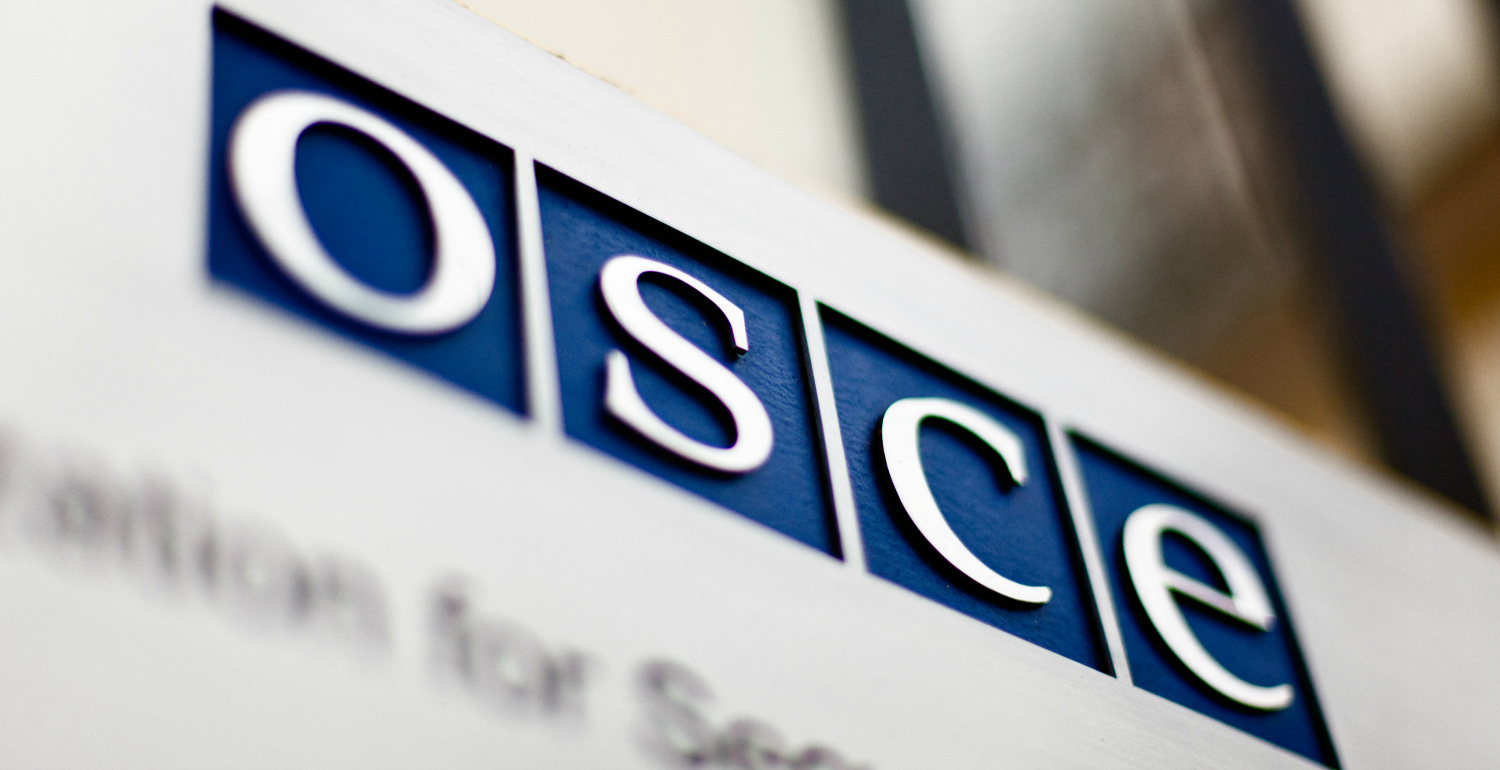By Winsome Packer, Helsinki Commission Representative to the US Mission to the OSCE
and Douglas Davidson, Senior State Department Advisor
What a difference a year can make. The 2008 Ministerial meeting of the Organization for Security and Cooperation in Europe (OSCE) in Helsinki was marked by lingering animosity and distrust exacerbated by the Russia-Georgia war a few months before. The OSCE’s 2009 Ministerial in Athens, by contrast, proceeded much more smoothly, setting the stage for the return to more positive and productive political dialogue among the Organization’s participating States.
This was a welcome change, for in recent years discord and inertia have steadily eroded the cooperation and consensus that were once the hallmarks of the OSCE. Recognizing this, in their meeting in Helsinki in December of 2008, the 56 foreign ministers or their representatives had agreed on the need for the OSCE to seek ways to overcome distrust and paralysis. In the course of 2009 the Greek Chairmanship then initiated what came to be called the Corfu Process, which was named after the venue for a midsummer informal meeting of foreign ministers, with the aim of doing just that. Part of this process was also to focus on European security, and not least on a key component of existing European security architecture, the Treaty on Conventional Forces in Europe (CFE), with which the Russian Federation suspended compliance two years ago.
For their Ministerial Council meeting in December of 2009, the Greeks set as their priorities the approval of a political declaration – something that hadn’t been achieved in a number of years – together with a separate political declaration on the Corfu Process and an operational decision on the continuation of that process during the 2010 Kazakh Chairmanship. By the time delegations reached Athens there were, in addition to six other human dimension draft decisions prepared by the Greeks, a plethora of additional draft decisions submitted by the participating States in all three dimensions. Of these, the Ministers agreed on decisions that addressed such fundamental and persistent problems as hate crimes, tolerance and nondiscrimination, nonproliferation, terrorism, and the “protracted conflict” in Nagorno-Karabakh. Among these approved decisions was also one on countering transnational threats jointly sponsored by the United States and Russia, the first such collaboration between the two nations in several years.
Russia also distributed a draft European Security Treaty on the eve of the Ministerial, though it did so bilaterally and outside the official confines of the OSCE. Nevertheless, Foreign Minister Lavrov seems to have expected that it would be discussed during the Ministerial Council. In the event, however, it was not. The participating States indicated instead a willingness to study and discuss the proposal within the Corfu Process.
Some other significant decisions did not make it through either. Among them, for the eighth year in a row, was the overall political declaration. It failed to achieve consensus mainly because of disagreements between the NATO allies and the Russian Federation over language on the CFE.
When the imminent demise of the political declaration became apparent, attempts immediately began to find a place for the paragraph it had contained on a summit in 2010, the highest priority for the incoming OSCE Chair, Kazakhstan. In the end this paragraph, in slightly modified form, wound up in the Corfu Process declaration, with language personally hammered out by Deputy Secretary of State James Steinberg, who led the U.S. delegation, with Kazakh Foreign Minister Saudabayev. In the final minutes of the meeting, Uzbekistan demanded that the phrase “We note positively” revert to the original “We note with interest,” but otherwise allowed the rest of the revised and more forward-leaning language on the summit to go through. Earlier the President of the OSCE Parliamentary Assembly, in his remarks to the Ministerial Council, had argued strongly for a summit. Deputy Secretary Steinberg’s enthusiasm was, despite his helpful intervention, reportedly more tempered.
A decision on freedom of the media, a U.S. priority, was not adopted in the end either, owing to last-minute objections from Turkmenistan and Uzbekistan. This decision had been the subject of much horse-trading, and the U.S. went into the final session believing it had a deal with the Russian Federation: In return for American assent to a decision on the 65th Anniversary of the Second World War, they would back the media decision, which was already at a state reduced enough to cause some anxiety among media freedom experts.
In the end, however, the Russians could not persuade Uzbekistan and Turkmenistan to go along. Turkmenistan argued that proper consultations had not been held with their delegation to enlist their support. Even so, the U.S. lifted its blockage of the World War II decision, which was, in essence, a response to the resolution approved during the 2009 annual Parliamentary Assembly meeting in Vilnius referencing Nazism and communism and was an important priority for the Russian delegation.
Attempts to issue statements or decisions on Moldova and Georgia also foundered, though the ministers at least managed a declaration on Nagorno-Karabakh, one hammered out by the Minsk Group. Another decision on trafficking in human beings also failed to achieve consensus. Russia, along with its allies, had also pressed hard for a decision to reopen the Vienna Document of 1999 for “updating”, but it failed in the face of opposition from western allies. A draft decision on climate change also failed, largely because of Russian opposition, as did a decision on democratic lawmaking, in which the Parliamentary Assembly had pressed for reference to the institutions to be consulted in developing a best practice guide. Other draft decisions such as one on the greening of the OSCE were referred to the Permanent Council for action It remains to be seen whether they will fare any better in that venue in 2010.





